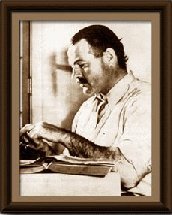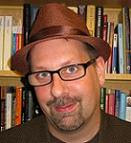 Minor spoilers herein.
Minor spoilers herein.
When it came out last year, Children of Men received much critical and popular praise, and for once everyone was right. I am very rarely moved to see a movie in the theatre these days, but this is one I do wish I had gone to see on the big screen.
As it was, even on my 25-inch TV, Children was a breathtaking revelation. I am talking for now only about the stunning visuals, which cannot properly be called "beautiful" as they render a depressing, futuristic Britain, but which can be called compelling, flawlessly detailed, and, most importantly, believable.
In fact, the film's believability, or at least its gritty, realistic mode, is key to what makes it such a gripping spectacle. The central premise -- that in the near future, human beings lose the ability to reproduce -- is never really explained, but the logic that follows from such a predicament is explored in a meticulously feverish, paranoid style that consciously strives to illuminate our present. And while the film thankfully never gets preachy, the political undercurrents are sometimes none-too-subtle. For example, the Britain of 2027 features its own uncoincidentally named "Homeland Security," populated with brutal paramilitary cops in charge of forcefully rounding up refugees and illegal immigrants, called Fujis. (Although it's admittedly somewhat over the top, the viewer is made to understand that Britain has the only semi-functioning society left on earth, and the government aims to keep it that way, by any means necessary.)
However, more important than the political notes it strikes is the film's major theme of faith. Again, the movie is not preachy or denominational ("Jesus Christ" is used exclusively as an exclamation of fear and horror), but the role of faith (or at least its more secular cousin, hope) vs. despair lies at the core of the film, eve though this fact unfortunately seems to have been lost on some critics, who wonder why more of the superficial details aren't explained.
To ask, for example, what caused the mass infertility in the first place or why one woman suddenly could become pregnant after so many years (and why her?) is to miss the point. The best way to approach a film like this is to treat it like a simple game of What If. Accept the premise then see where it goes. The job of the best storytelling is to illuminate the human condition, to tell us something fundamental about who we are and what it means to be who we are. What would it mean if everyone on the planet were infertile? How would we respond -- psychologically, politically, culturally, religiously -- to the seeming certainty that we were become a species with literally no future? These are the pertinent questions, and the ones the intelligent script ably addresses all while delivering a walloping tale of frenetic action and genuine thrills.
In the end, this movie may be what V for Vendetta hoped to be, or thought it was, or was thought to be by (snob alert) filmgoers with expectations lower than my admittedly demanding ones. On the other hand, that's probably an unfair comparison, as Vendetta is based on a comic book and filmed in a comic-book fashion whereas Children is based on a P.D. James novel and told in a quasi-documentary format, with fluidly moving cameras and jaw-dropping long takes that will leave you immediately wondering, "How the hell did they shoot that?" (One scene in particular -- you will know the one -- elicits this response, and fortunately the DVD contains a featurette that shows you how director Alfonso Cuaron and company pulled it off.)
Like anything else in life, Children of Men isn't perfect. In one scene where our hero (Clive Owen) has to navigate a combat zone, blood drops from a dying man splash the camera lens and remain there for several minutes as the camera continues to follow Owen. This suddenly and unexpectedly turns the camera into a character and takes the viewer out of the cinematic experience. I also would have preferred a slightly more ambiguous ending because I believe an even greater sense of mystery would have bolstered the theme about the importance of faith. As it stands, the ending is still quite ambiguous because of all the unknowns, so this is an exceedingly minor point. Lastly, what were they thinking with the music at the end? Simply the worst choice for a closing theme ever.
Anyway, I haven't read the book that inspired the movie, but I'm in possession of a copy and plan on digging in to see where James took this most terrifying idea. To my knowledge no one has asked her what she thought of the film, but I like to imagine she would agree with the approach that was taken. After all, she has been quoted as saying, "The greatest mystery of all is the human heart, and that is the mystery with which all good novelists are concerned."
The same is true of good filmmakers, and Alfonso Cuaron is obviously one.
Bottom line: Children of Men is an instant classic that earns a spot on my list of favorite dystopian films. Very highly recommended.
Tuesday, April 03, 2007
Come Again, Ye Children of Men
Subscribe to:
Comment Feed (RSS)











|